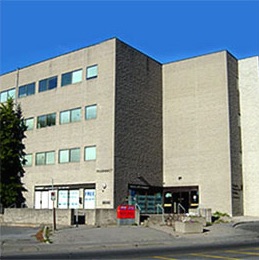Medication Safety Guide
Healthy living means taking care of yourself by getting proper rest, regular exercise and eating a balanced diet. That may include taking medication for any health related problems.
Knowing how to take good care of yourself and your family and taking responsibility for your personal care can be an excellent way to prevent illness and avoid serious health risks and side effects due to drug interactions.
Whether you are taking drugs prescribed by your doctor or non-prescription medications such as herbal medicines, pain relievers, cough and cold medicine or vitamins, you should be aware of the risks of interactions between certain medications. This section will offer important information and helpful tips on safe medication.
Your pharmacist can advise you on your medication therapy. Your pharmacist is a valuable source of information on drugs and can answer any questions you may have.
In order to accurately diagnose your health problem and prescribe the proper medication or therapy, your doctor must know:
• about any other medicines you are currently taking, both prescription and non-prescription.
• about any allergies or personal medical conditions you might have - such as pregnancy, high blood pressure, glaucoma, or diabetes.
• if you fully understand all instructions regarding your medication and have written down all instructions for future reference.
When buying or taking any medicine, you should always follow these tips to prevent problems:
• Inspect the outer packaging for signs of tampering. Read the label to identify the seals and other protective features to note.
• Don't use any medicine from a package that shows cuts, tears, or other imperfections. Report any suspicious packaging to the pharmacist or store manager.
• Examine the medicine itself before taking it. Make sure they are all the same and that there are no foreign materials in the package.
• Read the label with each dose to make sure you are taking the right medication. Never take medicine in the dark.
Always read the label and instructions on any non-prescription medicine before you buy it or take it.
The information on the labels will tell you:
• what symptoms the medicine can relieve
• how much to take
• when to take it and, just as important, when not to take it
• when to stop using the medicine
• warnings
• if and when to consult a doctor
• the medicine's active ingredients
Prescription Medications
• Take all prescription medicines as your doctor and/or pharmacist instructed. Do not take more or less medicine than prescribed.
• Do not stop taking the medication because you start to feel better. Incomplete treatment may cause a relapse of the illness. Keep taking the medication until you run out, unless your doctor advises you otherwise.
• Take medicines at the time prescribed. In some cases, medicines should be taken at specific times, with food or before going to bed. Check with your doctor or pharmacist if you have questions or if you missed your
• NEVER take any medicine that has been prescribed for a friend or relative and NEVER share your medication with others. They may be taking other medications or have health conditions that may put them at risk.
Herbal Medications
Herbal and natural medications are commonly used but it is important to remember that even though herbal remedies contain natural elements, they are still drugs and should be treated with the same care as your prescription and non-prescription medicines. Taken in large quantities, herbals could be toxic or harmful to your health. Before taking any herbal medication, check with your pharmacist or doctor for any potential drug interactions with your current medications.
When taking ALL medicines:
• Avoid alcoholic beverages when taking medicines until you check with your doctor or pharmacist.
• Check for an expiration date on your medicine label to make sure that the medicine is not expired. Taking expired product may be harmful or ineffective.
• Clean out your medicine cabinet at least once a year.
• Safely dispose of all out-of-date medicines. Ask your pharmacist if they have a disposal program. Do not throw medication in the garbage. It may be harmful if accidentally ingested by wildlife or pets or may contaminate water supplies.
• Keep all medicines in their original containers. This will eliminate the risk of confusing one medicine with another, not having the proper instructions on hand and taking out-dated medicines.
• All medications with child-resistant caps should be carefully secured after opening to prevent children from ingesting drugs.
• Prescription medicines without a child-resistant cap can be purchased for the handicapped, the elderly and childless families, by asking your pharmacist.
• Non-prescription medicines are available in non-child resistant packaging specifically labeled for households without young children.
• Be sure to store all medicines as instructed on the label. Avoid storing medication in a warm damp environment as this could alter the potency or efficacy of the drug. Do not store medication in your car glove compartment since cold or hot temperatures may damage the medication.
• If you are pregnant or breastfeeding, consult your doctor or pharmacist before taking ANY medication.
• Remember to place any handbags or brief cases containing medicines out of sight and reach of children.
Alert your doctor or pharmacist when...
• a medicine does not appear to be working correctly.
• your symptoms continue or get worse.
• you experience different symptoms or unexpected side effects.
Administering Medications to Children
If you are treating a child with medications...
• Always read the label to determine the proper dose for the child's age and weight.
• Talk to your doctor or pharmacist before giving two or more medicines at the same time.
• If the label says don't give to children under a certain age or weight, don't do it. Call your doctor.
• Be careful to keep iron-containing vitamins or supplements, out of the reach of children. These innocent drugs can be beneficial if taken daily, but if taken in large doses, are the leading cause of accidental poisoning deaths in children under three.
• Never guess on the amount of medicine given. Half an adult dose may be more than your child needs, or not enough to help.
• Follow the dosage instructions on the package. Increasing the recommended dosage could be harmful and even dangerous to the child.
• Pay attention to the abbreviations for TABLESPOON (Tbsp.) and TEASPOON (Tsp.). Don't confuse them.
• Make sure the dosage is accurate. Use proper measuring devices such as a dosage spoon, liquid dispensing syringe or cup.
Medication Safety Tips for the Elderly
If you are elderly...
• Make sure you advise your doctor and your pharmacist of all medications you are taking, including non-prescription drugs. This will prevent the doctor from prescribing any medicine that might interact with another and cause unwanted side effects. There is also the possibility that certain medicines, taken together, could increase or decrease their effectiveness.
Keeping your records together...
• Register all your medications, allergies and health history with one pharmacy. This can enable the pharmacist to verify that any new prescription will not interact with another you are taking. This service is particularly valuable if you are getting prescriptions from more than one doctor.
• If you are taking several different medicines or have a life threatening medical condition, keep a record of the medicines you are taking and the instructions for each. This is a good way to remind yourself and assist others in helping you if you should become incapacitated and unable to communicate.
Family Safety Tips
Your Medicine Cabinet - is it safe?
• Check expiration dates on medicines before each use.
• All medications that need disposed of should be returned to the pharmacy for safe disposal. Medication should not be thrown down the toilet or in your garbage since they will end up in our water supply. Your Lovell Drugs pharmacy will have your old and expired medications destroyed properly.
• Medications should be safely disposed of if a doctor tells you that a prescription medicine should no longer be taken, if any medicine that has a noticeable change in color or smell, or if the label or package instructions are missing or can not be read clearly.
• Always store medicines out of the sight and reach of children.
• Organize medicines for convenient and safe access, but remember that children are curious. Children who crawl and climb can easily reach medicines on countertops or shelves.
• Be sure all medicines have child-resistant caps. People who have difficulty opening these caps can ask their pharmacist for regular closures. If young children are present, remember to place these products out of their sight and reach and put child-resistant caps back on medicines.
• Teach children to respect medicines. Avoid taking medicine in front of children and never tell a child that the medicine you give them is candy or tastes like candy. Even vitamins taken in large doses can be harmful to a child.
• Keep the phone numbers for the poison control center and your doctor near the telephone at all times. Remember to discuss with babysitters these telephone numbers and write down any instructions for medicines your child is taking.
20 Questions You Should Ask About New Medicines
Your Lovell Pharmacist and physician are health experts, but your health is also your responsibility. Whenever you receive a new medication, please discuss the following subjects with your pharmacist:
1. What is the name of the medicine?
2. Why has this medicine been prescribed for me?
3. How will I know if the medicine is working correctly?
4. How long will it take to have an effect?
5. How should I take the medicine?
6. How much of the medicine should I take?
7. At what exact time(s) (during the day & night) should I administer the medicine?
8. Does the medicine have to be taken before or after eating some food?
9. What does it mean to take a medicine on an empty stomach?
10. Are there any foods that should be avoided?
11. Should alcoholic or any other beverages, such as milk be avoided while taking this medicine?
12. Are there any non-prescription medicines that should not be taken at the same time?
13. Are there any prescription medicines that should not be taken at the same time?
14. What are the most common side effects of the medicine?
15. What should I do if I experience one of these side effects?
16. What adverse effects should prompt me to call the pharmacist or doctor?
17. How long should I take the medicine?
18. Can the prescription be refilled and how?
19. How should the medicine be stored?
20. What is the expiration date?


